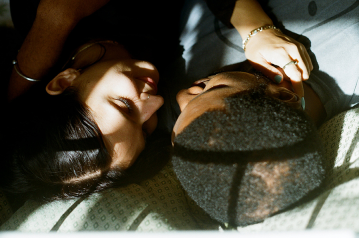Why IVF can fail even with “perfect” embryos

It feels like the ultimate betrayal: your doctor tells you the embryos look “perfect,” everything went smoothly, and yet the pregnancy test is negative. It’s heartbreaking, but the truth is that even when embryos are graded as top quality, IVF can still fail. That doesn’t mean your body “rejected” them or that you did something wrong — it’s just that human reproduction is far more complex than embryo grades alone.
What “good embryos” really means?
When an embryologist says your embryos look good, they’re judging based on appearance (cell number, symmetry, fragmentation). But embryo grading is a bit like judging a book by its cover: it gives helpful clues, but it doesn’t tell the full story.
- A perfect-looking embryo may still have chromosomal issues.
- Some embryos develop normally in the lab but fail to implant in the uterus.
- Even genetically normal embryos sometimes don’t result in pregnancy.
So while good embryos improve your chances, they can’t guarantee success.
Factors that influence IVF success beyond embryo quality
Embryo quality is only one piece of the IVF puzzle. Other factors matter just as much, including:
- Uterine environment: The endometrium (uterine lining) has to be receptive at the right time.
- Chromosomal health: Even with PGT testing, not all embryos implant successfully.
- Immune and hormonal factors: Subtle imbalances can make implantation harder.
- Sheer chance: Natural conception fails more often than it succeeds — IVF is no different.
Why “perfect” doesn’t guarantee pregnancy
As much as we wish it was, conception is never a guarantee. Even couples without fertility struggles take months (sometimes years) to conceive naturally. IVF gives doctors more control — but it can’t remove the element of chance. A single embryo transfer, no matter how good, is never 100%.
Coping when IVF fails, despite good embryos
The disappointment can feel brutal — like the universe is playing a cruel trick. You did everything right, so why didn’t it work? Here are a few reminders:
- It’s not your fault. Stress, guilt, or that glass of wine last month didn’t cause this.
- One failed transfer doesn’t define your future. Many people need multiple transfers before success.
- Support is essential. Therapy, support groups, or simply talking with others who’ve been there can help lighten the weight.
- Reframe progress. Even failed cycles bring information — about your body, embryos, and treatment path.
The bottom line
Yes, IVF can fail even when everything looks good — and it doesn’t mean your chances are gone. Good embryos improve odds, but success depends on multiple factors that no doctor (or patient) can fully control. What matters most is remembering you’re not broken, you’re not to blame, and you’re not alone.
At Gaia, our personalized Plans are designed to help you through every step of treatment, with financial support, therapy sessions, and a dedicated advocate by your side.




.png)